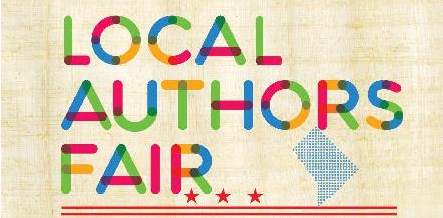The Lilith Blog 1 of 2
March 23, 2017 by Matilda Feder
My Unexpected Journey at the Washington Jewish Literary Festival
 I was particularly interested in the Washington Jewish Literary Festival this year because of its theme, “Unexpected Journeys.” It fit its title from the start. My first event of the festival, the Local Authors Panel on March 15, was also the opening event because of an unexpected late winter snowstorm that delayed the start of the festival. And in asking local Jewish authors about the festival theme, I too was taken down a surprising road.
I was particularly interested in the Washington Jewish Literary Festival this year because of its theme, “Unexpected Journeys.” It fit its title from the start. My first event of the festival, the Local Authors Panel on March 15, was also the opening event because of an unexpected late winter snowstorm that delayed the start of the festival. And in asking local Jewish authors about the festival theme, I too was taken down a surprising road.
The moderator of the Local Authors panel was Leslie Maitland, a former award-winning reporter and national correspondent for the New York Times. Maitland opened the event by introducing herself and describing how she came to write her own book about her mother’s escape from Europe during World War II. She retraced her mother’s past both physically, by visiting the places her mother had travelled through, and intellectually, by working to research what had happened to the long-lost love her mother had been forced to leave behind.
I was struck, emotionally, as we so often are, by the parts of Maitland’s story that seemed like my own. I too have worked hard to learn the story of my family’s escape from Europe, to catalog the details that are known and infer the ones that are missing. But listening to Maitland, I was particularly caught not just by her drive to find and tell the story, but by certain details from the story itself.
Maitland’s mother was a German Jew who escaped early in the war to France, and met and fell in love with a Frenchman. She lost touch with him in 1942 when she and her family traveled on the very last boat of refugees to cross the Atlantic to Cuba, on a boat called the San Thome. She was about 18.
In a surprising coincidence, my own grandfather, a Belgian Jew, also traveled on the San Thome to Cuba in 1942. He was also about 18.
I thought about this remarkable coincidence while I listened to the other authors on the panel, all of whom had fascinating unexpected journeys of their own.
Peter Lovenheim wrote In the Neighborhood: The Search for Community on an American Street, One Sleepover at a Time when a murder-suicide rocked his peaceful neighborhood and made him realize his neighbors were strangers to each other. His writing sent him to sleepovers at many of their houses. Beginning with a tragedy, and then embarking on this unique endeavor, Lovenheim’s journey was definitely unusual, and the results were equally surprising. For example, Lovenheim told us that he got to know one older neighbor so well after sleeping over at his house, the man eventually became like a father figure to him.
Marlene Trestman’s book about Supreme Court advocate and feminist champion Bessie Margolin, Fair Labor Lawyer: The Remarkable Life of Bessie Margolin, was written following Trestman’s own legal career. Margolin became an influential lawyer in a time and place when it was almost impossible for women to do so, let alone a woman like Margolin who was a Jewish orphan from the South in the early 20th century. Trestman herself had some of the same disadvantages as Margolin and two decades earlier would have grown up at the same orphanage. Instead, she was able to follow her path to the same high school, into the law, and eventually came to write her biography.
Carolivia Herron’s newest book, Peacesong DC, is a “fictionalized autobiography”, a story that is in some ways the story of her own life. And Herron’s life is most definitely an unexpected journey. She told us she began feeling that she was Jewish in Baptist church at the age of four; and she never relinquished that certainty, no matter how often it was rejected by those who didn’t understand her conviction. Peacesong DC sketches an unpredictable and fascinating journey through four cultures; Jewish heritage, academic study, African-American culture, and life in Washington.
Every author on the panel, in fact, had traveled unexpected roads either in the process of writing their books, in their lives, or simply in the stories they chose to tell.
After the event, I went to speak with Leslie Maitland. We discussed the San Thome, Tiscornia (the Cuban internment camp where her mother and my grandfather likely stayed at the same time), and whether or not they had known each other. I bought her book, and went home to call my grandfather, who at 94 has trouble with names, but is very good remembering most things.
I gave him Maitland’s mother’s name, and her little sister’s name and age, and he told me that he did remember them from the refugee ship crossing the Atlantic.
Incredible, every part of it—Maitland’s mother’s road from Germany to Cuba to New York City, and my grandfather’s from Belgium to Cuba and eventually to Vermont. And the unexpected journey Leslie Maitland and I both made, so that after she wrote a book, and I had heard my grandfather tell me about his life, we met in a room in the Edlavitch DCJCC at the Washington Jewish Literary Festival.
The views and opinions expressed in this article are the author’s own and do not necessarily reflect those of Lilith Magazine.
 Please wait...
Please wait...